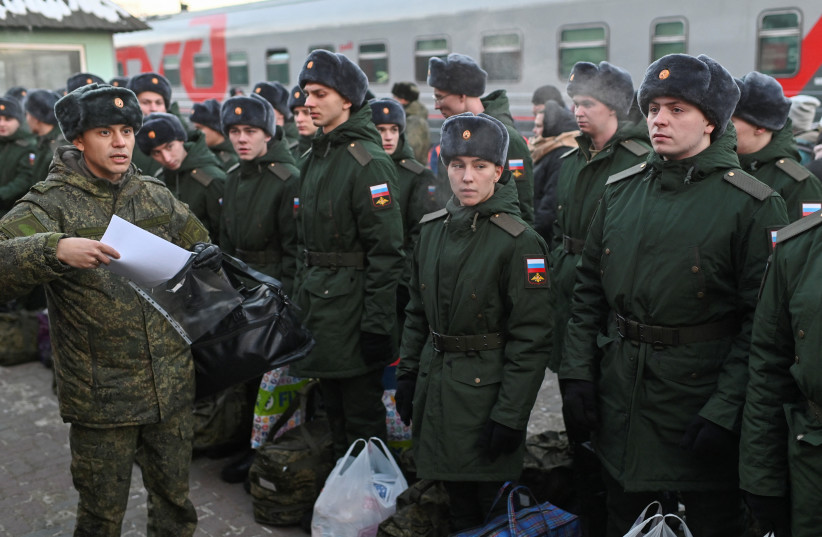Russian President Vladimir Putin said on Wednesday his army could be fighting in Ukraine for a long time, but he saw no sense in expanding a call-up of 300,000 reservists from September and October after serious Russian battlefield setbacks.
Earlier, Russia's ally Belarus said it was moving troops and military hardware to counteract what it called a threat of terrorism, amid signs that Moscow may be pressing Minsk to open a new front in Ukraine as the war has bogged down.
A rare speech by Putin
Putin has rarely spoken about the war's likely duration as Russia has been forced into a series of significant retreats in the face of Ukrainian counter-offensives, waged with increasing stocks of Western weaponry, in the east and south since July.
Russia launched what it calls its "special military operation" in February, saying Ukraine's deepening ties with the West posed a security threat. Kyiv and its allies say the invasion amounts to an imperialist land grab.
"As for the duration of the special military operation, well, of course, this can be a long process," Putin said during a televised meeting of his Human Rights Council, where the Ukraine war took center stage.

He said there was no reason for a second military mobilization at this point, after the autumn's mass call-up.
Around 150,000 of those 300,000 reservists were deployed in Ukraine, 77,000 in combat units, he said. The remaining 150,000 were still at training centers.
"Under these conditions, talk about any additional mobilization measures simply makes no sense," Putin said.
No regrets about the war
Russians, he said, would "defend ourselves with all the means at our disposal," asserting that Russia was seen in the West as "a second-class country that has no right to exist at all."
Putin further said the risk of a nuclear war was growing - the latest in a string of such warnings apparently meant to deter Kyiv's Western backers from more robust involvement - but that Russia would not threaten recklessly to use such weapons.
Despite recent retreats on the battlefield, including the loss of Kherson, the one Ukrainian provincial capital Russia captured, Putin has said he has no regrets about launching a war that is Europe's most devastating since World War Two.
He said Russia had already achieved a "significant result" with the acquisition of "new territories" - a reference to the annexation of four partly occupied regions in September that Kyiv and most members of the United Nations condemned as illegal.
